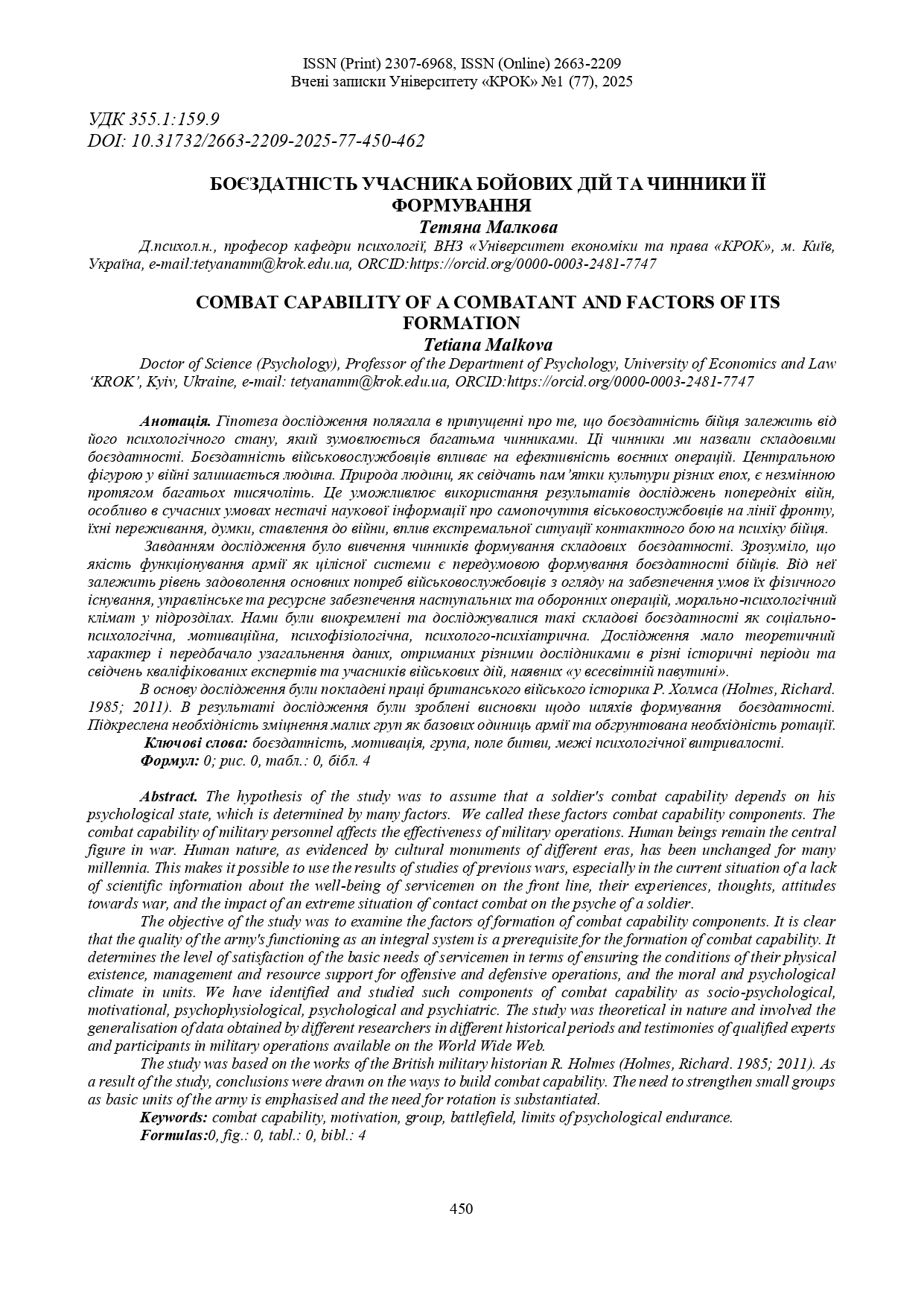COMBAT CAPABILITY OF A COMBATANT AND FACTORS OF ITS FORMATION
DOI:
https://doi.org/10.31732/2663-2209-2025-77-450-462Keywords:
combat capability, motivation, group, battlefield, limits of psychological enduranceAbstract
The hypothesis of the study was to assume that a soldier's combat capability depends on his psychological state, which is determined by many factors. We called these factors combat capability components. The combat capability of military personnel affects the effectiveness of military operations. Human beings remain the central figure in war. Human nature, as evidenced by cultural monuments of different eras, has been unchanged for many millennia. This makes it possible to use the results of studies of previous wars, especially in the current situation of a lack of scientific information about the well-being of servicemen on the front line, their experiences, thoughts, attitudes towards war, and the impact of an extreme situation of contact combat on the psyche of a soldier.
The objective of the study was to examine the factors of formation of combat capability components. It is clear that the quality of the army's functioning as an integral system is a prerequisite for the formation of combat capability. It determines the level of satisfaction of the basic needs of servicemen in terms of ensuring the conditions of their physical existence, management and resource support for offensive and defensive operations, and the moral and psychological climate in units. We have identified and studied such components of combat capability as socio-psychological, motivational, psychophysiological, psychological and psychiatric. The study was theoretical in nature and involved the generalisation of data obtained by different researchers in different historical periods and testimonies of qualified experts and participants in military operations available on the World Wide Web.
The study was based on the works of the British military historian R. Holmes (Holmes, Richard. 1985; 2011). As a result of the study, conclusions were drawn on the ways to build combat capability. The need to strengthen small groups as basic units of the army is emphasised and the need for rotation is substantiated.
Downloads
References
Holmes, R. (1985). Acts of War. The Behaviour of Men in Battle. Great Britan: Cassell edition published. 448.
Holmes, R. (2011). Soldiers. Army lives and loyalties from redcoats to dusty warriors. London. 656.
Watson, P. (1980). War on the Mind. The Military Uses and Abuses of Psychology/ Pelican/Penguin. 523.
Clapham, H. S. (2006). Mud and Khaki. The Memories of an Incomplete Soldiers. Naval Military Press LTD. 252.

Downloads
Published
How to Cite
Issue
Section
License

This work is licensed under a Creative Commons Attribution-NonCommercial 4.0 International License.

